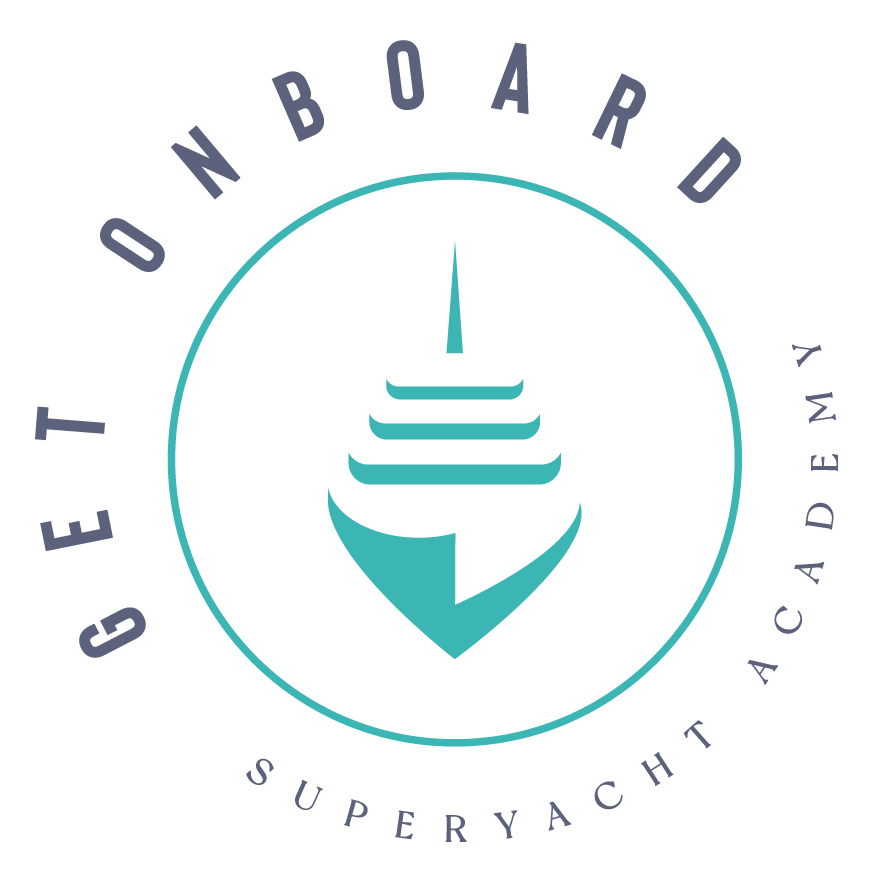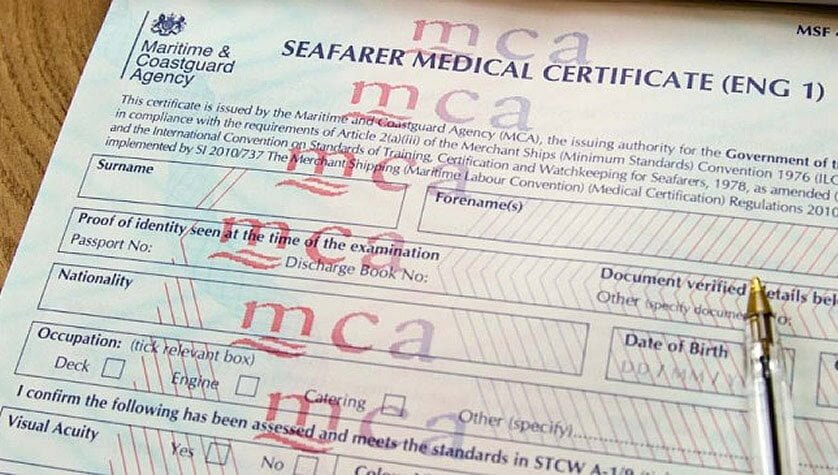In order to be be able to work at sea, it is mandatory that you obtain a seafarer medical certificate that confirms you are fit and able to carry out your designated duties onboard. At Get Onboard Superyacht Academy, we assist with a number of courses and qualifications for those looking for a career in the Super Yacht Industry.
The ENG1 medical certificate is a requirement of the MCA (Maritime and Coastguard Agency) and therefore it would be against the law for you to work without one. Furthermore, Professional Yachtmasters will not be able to have their qualification commercially endorsed without a seafarer medical certificate.
There are two types of certificate approved by the MCA: an ENG1 Medical Certificate (referred to as ENG1) and an ML5 Medical Certificate (referred to as ML5).
Do I need an ENG1 or an ML5?
If you are looking to make a career at sea (in other words, become a ‘seafarer’ and work on super yachts) then you will need an ENG1. The only exception to this is if you are going to work on board a small commercial vessel certificated for Area Category 2 to 6 (so one which doesn’t go more than 60 miles from a safe haven), in which case you would only require an ML5 Certificate.
According to the Maritime Labour Convention (MLC), “a seafarer is any person, including a master, who is employed or engaged or works in any capacity on board a ship and whose normal place of work is on a ship.”
How do I apply for an ENG1 or ML5?
An ENG1 must be issued by an MCA-approved doctor. You can book your ENG1 medical directly with us.
How much does the ENG1 medical certificate cost?
The current fee for an ENG1 is R2,500.
What happens in an ENG1 medical and what do I need to take?
The appointment should take around 30-40 minutes and the medical is non-invasive. The doctor will ask for a urine sample so that your kidney function and blood sugar levels can be tested, they will measure your height and weight, take your blood pressure, listen to your lungs as well as check your ears nose and throat. You will have your eyesight tested and be checked for colour blindness and they will also test your reflexes and give you a physical examination. If you have any previous medical history then the doctor will discuss this with you too.
A standard ENG1 examination will include:
-
Measuring your height and weight
-
A standard eye test
-
A colour blindness test
-
A hearing test
-
Ear and throat evaluations
-
Teeth/gums inspection
-
Questions on your medical history, drinking habits, etc.
-
A urine sample (to test kidney functionality and blood sugar)
-
Reflex testing
-
Listening to your heart and lungs, testing blood pressure and heart rate
-
Hernia testing (asking you to cough while gently pressing your abdomen)
Make sure to take along 2 ID photos as well as your ID or Passport.
How do I get my ENG1 certificate?
Once your doctor has finished your examination they will issue you with one of the following 3 certificates:
-
Fit without restrictions (unrestricted)
-
Fit with restrictions (limiting your work to certain jobs or locations)
-
Temporarily, or permanently unfit
If you pass, the doctor will usually issue you with your ENG1 certificate that same day. If you are found to be unfit or your ENG1 is restricted then the doctor will issue you with a ‘Notice of Failure/Restriction (ENG3)’ form. The ENG3 will tell you what to do if you want to have an independent medical review.
What if I fail my ENG1 medical?
If you do not pass your ENG1 medical (ie. you are “temporarily or permanently unfit”), these results will stand for five years. You can have another ENG1 medical during the next five years if you can medically prove that the condition that caused you to fail has been reversed.
Can I get an ENG1 if I am colour blind?
During your ENG1 medical you will be tested for colour blindness using the Ishihara test. If you fail the Ishihara test then don’t panic! There is a colour vision test you can choose to take called “Colour Assessment and Diagnosis” (CAD) which measures the severity and type of colour vision loss, and reliably detects congenital deficiency.
If you pass the CAD test and have no other medical conditions which could affect your ability to carry out your duties at sea, then this is great news as you will be issued an unrestricted ENG1.
If you fail the CAD test you will be issued an ENG1 with the restriction ‘Not Fit for lookout duties at night. Not eligible for MCA CoC or rating certification’ and the certificate will be ticked ‘not fit for lookout duties’.
You will receive a letter from the CAD test centre to confirm your test result which you will be required to take to all future medicals.
Deck officers or trainee officers who have failed both the Ishihara test and the CAD test will be classed as permanently unfit for sea service.
For how long is my ENG1 or ML5 valid?
An ENG1 can be valid for up to two years (one year if you are aged between 16 and 18) and an ML5 can be valid for up to five years, however either certificate would become invalid if you developed a condition or a disability (mental or physical) which affects your ability to work.
When should I apply for my ENG1?
We highly recommend you obtain your ENG1 prior to starting your course so that you are ready to begin work as soon as your course has finished. This will also highlight at the outset any issues which might affect your ability to work at sea, such as colour blindness.


